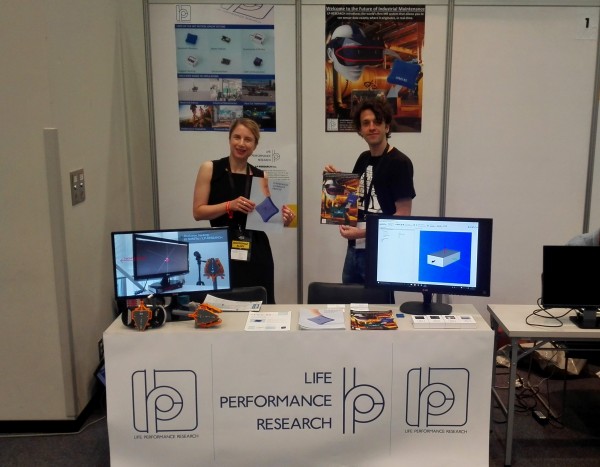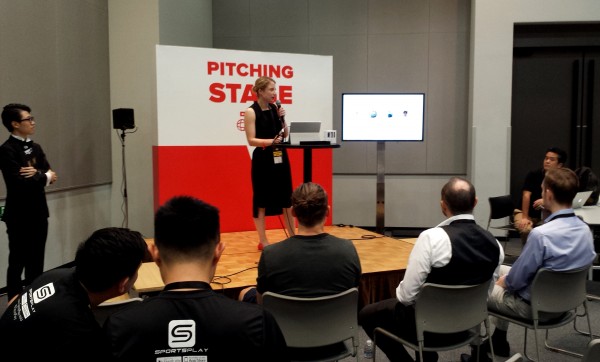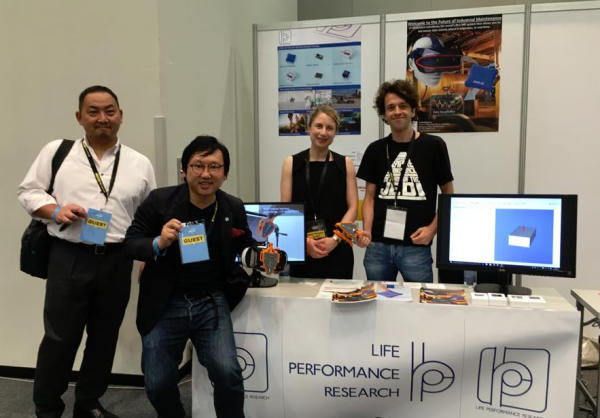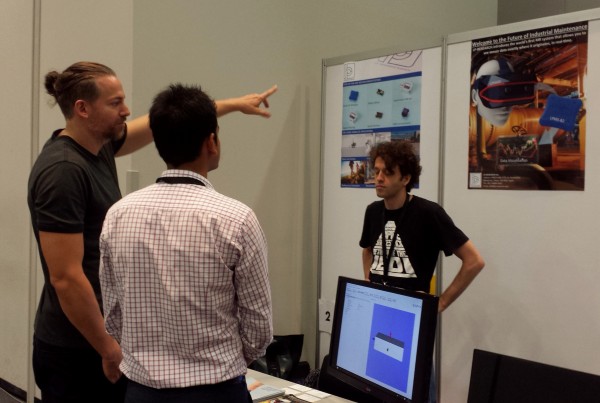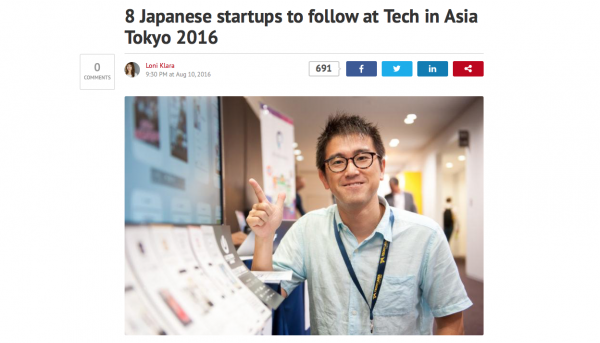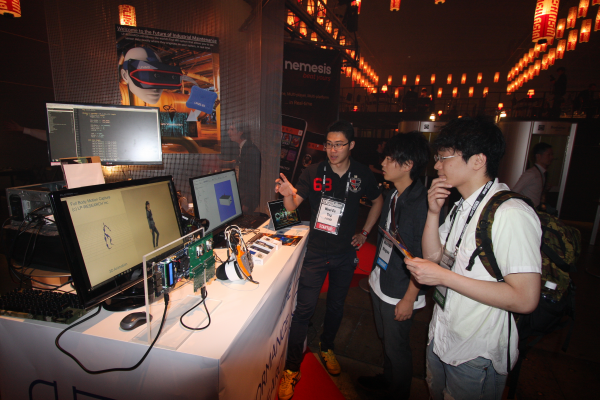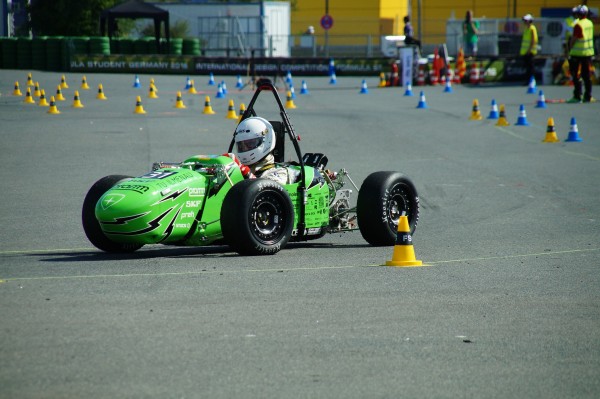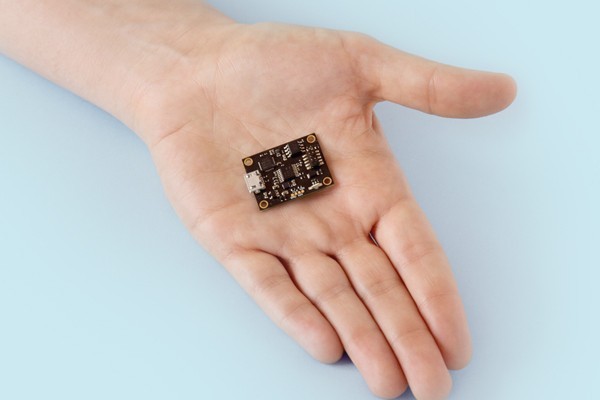Tech in Asia Wrap-up
Last week we set up our booth at the Tech in Asia Tokyo 2016 startup fair. During two days, Japanese and international founders, developers, marketing experts, investors, recruiters and many more roamed the two big halls at Shibuya Gardens Bellesalle. It was a great experience for us to get in touch with potential investors and network with industry experts.
At our booth we highlighted some of our technologies such as our new line of sensors. Besides providing a hands-on experience with our Inertial Measurement Units (IMUs), we showcased our virtual reality headset and wireless controller. These use our sensor fusion technology to combine data from IMUs and a camera-based positioning system to obtain precise, reliable positioning and tracking for a room-scale VR system.
Our booth was pretty popular and throughout the day many curious visitors came to try out the wireless sensor function by themselves. They could hold our new LPMS-B2 Bluetooth sensor in their hands, turn it around and see its tracking in real time on a flatscreen.
See you again next year!

